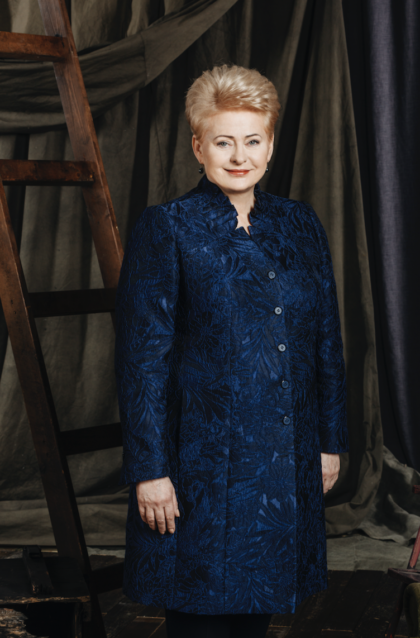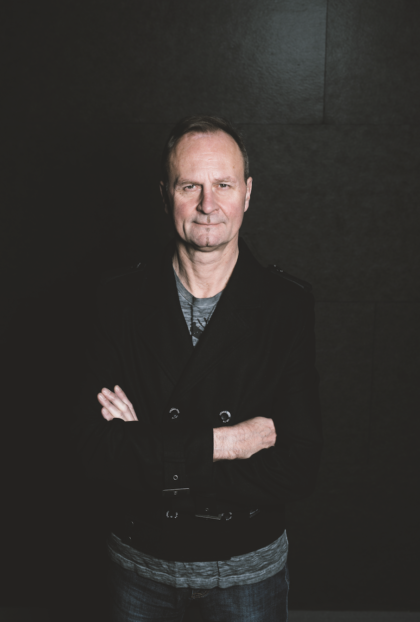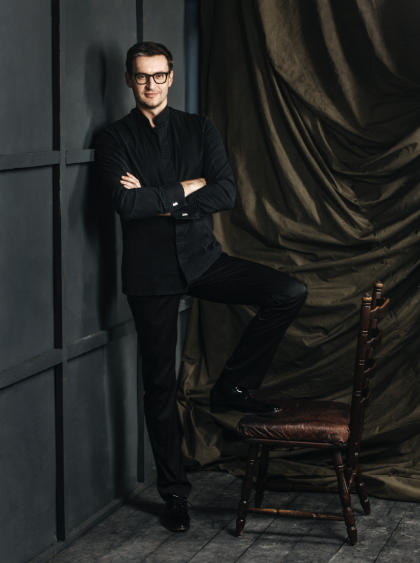Literary and Theatre Scholar (1928-2020)

However difficult things might be, the most important thing is to never lose hope.
Irena Veisaitė
I admire people who manage to remain true to themselves no matter what the surroundings, who don’t give in to various pressures and always listen to their conscience. I admire and even feel some harmless envy towards those who have a sense of humour and can remember many jokes.
An inquisitive mind helps your spirit stay young.
Freedom of choice is something we all have, but in a limited way. We didn’t choose our time, our nationality or gender, where we were brought up, or our native language. These are given to us. But what we have is free will and the right to choose, as well as responsibility for our actions and moral values. Sometimes this is understood in terms of everyday life – do we buy a dress or a pair of shoes, should we walk or drive to Paris or Berlin? Existential choices, however, carry far more responsibility. These are especially important when living under totalitarian conditions, or when catastrophe strikes in personal life or in society. Here our choices are determined by our values.
In the most difficult times of my life I tried to never lose hope nor my belief in goodness and justice, and under no circumstances to give in to anger or the desire for revenge. I never made rash decisions. I used to say to myself, “Sleep on your dilemma, calm down, and only then decide.”
Learning history, on the other hand, can expand everyone’s knowledge as well as liberate them. It allows people to form their own opinions.
Fear is a feeling that is very hard to overcome. I always think of Brecht’s play The Life of Galileo. Galileo’s student Andrea Sarti was certain that Galileo would never renounce what he believed was the true understanding of the universe, which at that time contradicted the teachings of the all-powerful church. Unfortunately, compelled by the Inquisition, Galileo recanted his beliefs. When Andrea learned of this, he shouted: “Unhappy is the land that breeds no hero.” Galileo answered him, “No, unhappy is the land that needs a hero.”
Time has a certain quality – it goes by very quickly.
I used to teach students in my time and now I myself am learning from them.
There is nothing more beautiful than love, genuine friendship and a clear conscience.
Irena Veisaitė
There are still a lot of things our society does not want to talk about or would prefer to forget altogether.
September 1st, 1939. It was clear to everyone that war would begin between the Soviet Union and Germany sooner or later. That day I was ten years old and was sitting in the customs office of Kaunas Airport waiting for a plane to arrive from Warsaw to take me to Helsinki. My mother was in Stockholm at the time and had decided we would emigrate to the United States together. But the plane never came. Instead, the Second World War began that day with Nazi Germany invading Poland. I had to go home, and my mother returned to Kaunas. Later, I understood that this is how fate decides things.
In 1948, I was running from the soviet security services who were persecuting me and trying to make me an informant. I also learned they were planning to throw me out of Vilnius University where I had just finished my first year of studies in the Lithuanian Department. My friends advised me to leave Vilnius and so I moved to Moscow where I stayed with my uncle, my father’s brother, and joined Moscow University. The security services functioned just as poorly as most soviet institutions, and my case seems to have reached Moscow only in 1953, when Stalin died. By then, I was in my fifth year at university and was able to finish my studies and return to Lithuania.
Life in the Kaunas ghetto was constant hunger, constant fear of death, a desperate desire to live, and a boundless yearning to learn and tell the world what happened.
My parents taught me to honour and respect others, even those who are different, to behave correctly and have manners, as well as many other things.
Irena Veisaitė
It’s very hard for me to speak about my grandparents, uncles, aunts and friends, especially about the death of my 35-year-old mother in the Holocaust. It’s hard to speak about my second mother, Stefanija Ladigienė, who was imprisoned in the Gulag and who saved my life by putting her own life in danger. I loved her without end. The feeling that I was unable to save her from the Gulag was, and continues to be, especially painful. I cannot forget that terrible sense of helplessness when, after the troika’s judgement, I ran down Vrublevskio Street screaming in a voice not my own, chasing the so-called voronok police van that was taking my second mother back to prison. She was sentenced to ten years and taken away to Siberia.
We are all people who make mistakes, which is why I try not to think I am the only one who is right. I avoid categorical judgements and have learned to learn from others, especially in old age. I used to teach students, and now I learn from them. In that way, or so it seems to me, my soul doesn’t grow old so fast.
Living in an independent Lithuania is a miracle. No one believed that we would get out of that giant Soviet cage. Although hopes are not always fulfilled in life, and there have been and continue to be disappointments, it has not taken away our faith. We are, after all, just people, fallible beings, who have not managed to stay aloft on the wings of Sąjūdis, but equally have not lost our hope completely. In any case, I believe in our future. Everything takes time. We often fail to appreciate what we have and what we’ve accomplished. Sometimes, though, I am thrown into despair when I see the world falling into the same trap, seeking strong leadership, promoting nationalism and forgetting that this was precisely what led to the Second World War.
It’s only a matter of time before we understand that money does not bring happiness.
I feel uncomfortable when faced with ignorance.
To be a patriot of one’s country is to work for one’s country, to love it and cherish its language and traditions, while at the same time not being afraid to acknowledge the darker periods in its history. Constructive criticism that is delivered with love and without hate is the recipe for progress. It is very important to distinguish patriotism from nationalism. The latter is an expression of dangerous pride and hatred of others. I agree with Tomas Venclova who says that “freedom and truth are more important than a nation.”
Walking through the streets of Vilnius, I think about their history: about Gediminas, the previous occupations, how the population has changed, how different people have come and gone. It’s especially hard for me to walk the streets of the former Vilnius ghetto, even though I lived through the horror of the ghetto in Kaunas, my hometown. There is a lot of pain and despair ingrained in the streets of Vilnius.
However difficult things might be, the most important thing is to never lose hope. According to the German proverb, “when you lose hope, you lose everything” (Mut verloren, alles verloren).




